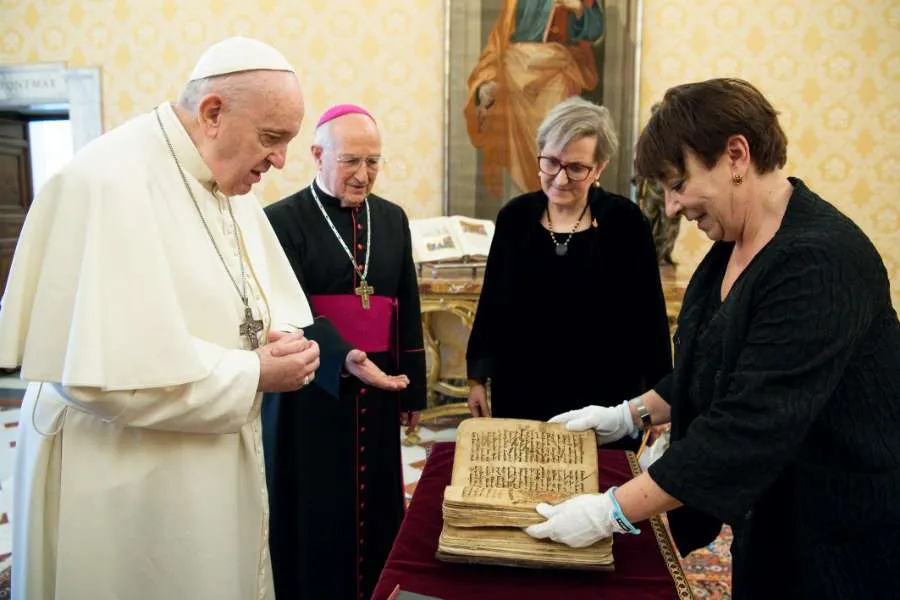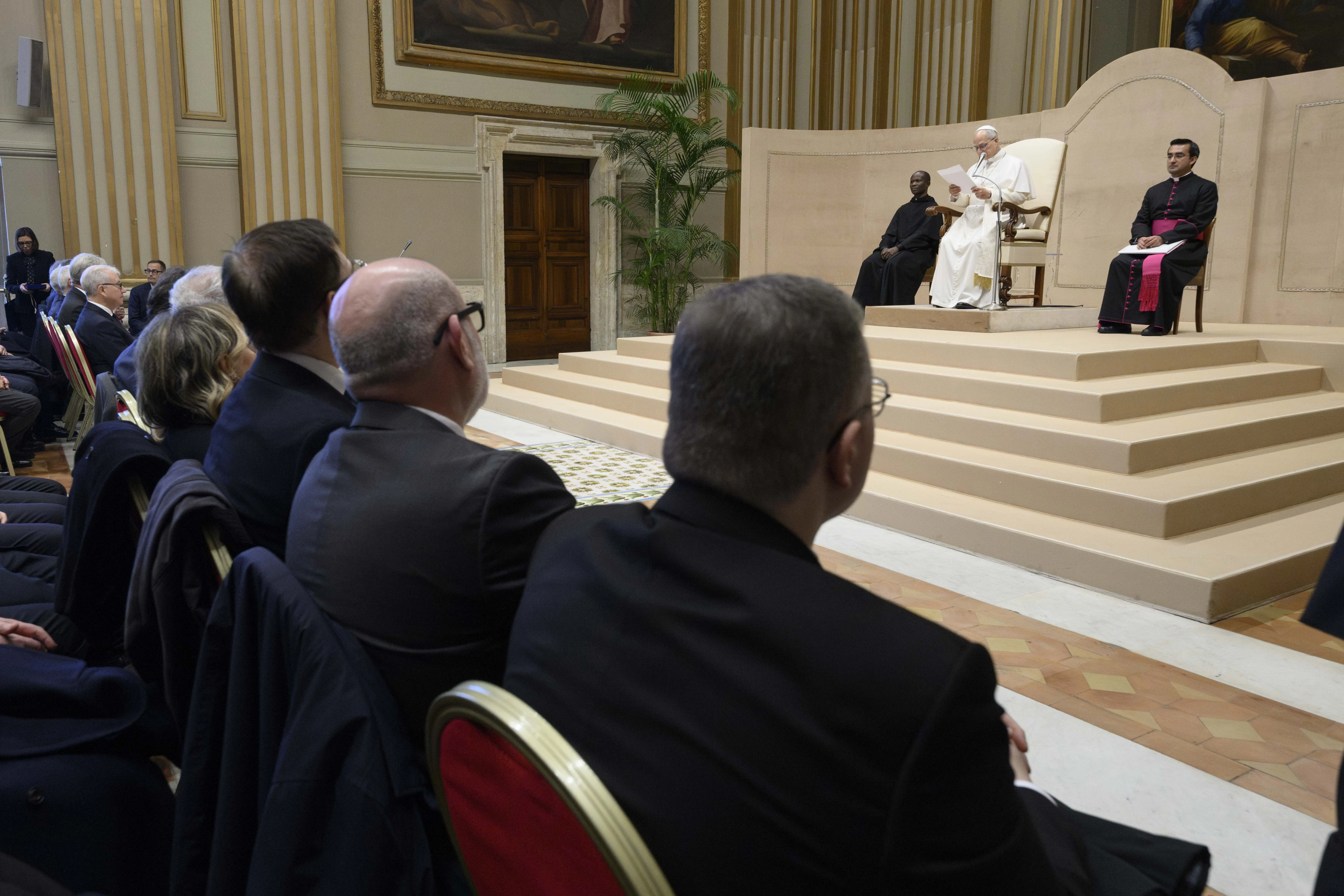The book was discovered in northern Iraq in January 2017 by journalists -- when Mosul was still in the hands of Islamic State -- and sent to the local bishop, Archbishop Yohanna Butros Mouché, who entrusted it to a federation of Christian NGOs for safekeeping.
Like Bakhdida’s Immaculate Conception Cathedral itself, the manuscript recently underwent a thorough restoration process.
The Central Institute for the Conservation of Books (ICPAL) in Rome oversaw the restoration of the manuscript, which was funded by the Italian Ministry of Cultural Heritage.

The 10-month restoration process involved consultation with experts at the Vatican Library, which has Syriac volumes dating back to the same period. The only original element of the book that was replaced was the thread that bonds it together.
Pope Francis received a small delegation in the library of the Apostolic Palace on Feb. 10. The group presented the pope with the restored liturgical text.
The delegation included the head of the restoration laboratory of ICPAL, Archbishop Luigi Bressan, the retired archbishop of Trento, and the leader of the Federation of Christian Organizations in International Voluntary Service (FOCSIV), the Italian federation of 87 NGOs that helped to ensure the book’s safety when it was found in northern Iraq.

During the meeting with the pope, FOCSIV’s president Ivana Borsotto said: “We are in your presence because in recent years we have saved and restored in Italy, thanks to the Ministry for Cultural Heritage, this ‘refugee book’ -- a sacred book of the Syriac-Christian Church of Iraq, one of the oldest manuscripts preserved in the Church of the Immaculate Conception in the city of Qaraqosh in the Nineveh Plains.”
“Today we are happy to return it symbolically into the hands of His Holiness to return it to its home, to its Church in that tormented land, as a sign of peace, of brotherhood,” she said.








